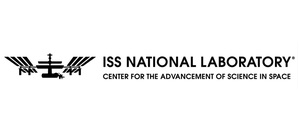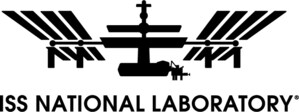More than 50 peer-reviewed articles published in fiscal year 2024, bringing all-time number to nearly 450
KENNEDY SPACE CENTER, Fla., Jan. 9, 2025 /PRNewswire/ -- The International Space Station (ISS) National Laboratory pushed scientific boundaries and set a record in scholarly output over the past year. Results from these investigations address real-world challenges and benefit Earth's economy.
In fiscal year 2024 (October 1, 2023-September 30, 2024), more than 50 peer-reviewed articles related to ISS National Lab-sponsored research were published, bringing the all-time number to nearly 450. These findings lay a robust foundation for ongoing scientific advancements that promise significant benefits for humanity. Several groundbreaking results were featured in three new issues of Upward, official magazine of the ISS National Lab, highlighting the broad impact of research in space to improve the lives of people on Earth.
The following list details some of the most transformative investigations, underscoring their potential to drive further innovation and valuable applications.
Top ISS National Lab-Related Scientific Results Highlighted in 2024
1. Biomedical Advances: 3D Printing of Human Heart Tissue
-
- Redwire Corporation utilized its BioFabrication Facility (BFF) on the ISS to 3D print live human heart tissue. This achievement moves us closer to producing complex human tissues in space to treat damaged tissue in people on Earth, potentially revolutionizing medical treatments for many conditions.
2. Materials Science: Manufacturing Optical Fibers
-
- Flawless Photonics produced more than 11 kilometers of ZBLAN optical fiber onboard the ISS, including a record-setting single pull that was more than a kilometer long. This production showcases the potential for creating superior optical fibers in microgravity, which could enhance telecommunications and medical technologies on Earth.
3. Global Monitoring: Advanced Hyperspectral Imaging
-
- Orbital Sidekick validated its cutting-edge hyperspectral imaging technology to monitor ecological changes and potential environmental disasters from space. This validation was a crucial step for the company to offer real-time global monitoring services that provide customers with a powerful tool to solve their most pressing challenges.
4. Agricultural Innovations: Genetic Studies in Microgravity
-
- Clemson University research into cotton genetics under microgravity conditions uncovered new methods to enhance crop resilience and productivity, with potential applications that could benefit global agricultural practices.
5. Neurological Insights: Studying Brain Organoids
-
- Axonis Therapeutics grew brain organoids in space to test a new therapeutic for neurological conditions like Alzheimer's, Parkinson's, and spinal cord injury. The ability to self-assemble brain organoids from mature cells in space in just a few days compared to months on Earth highlights the unique benefits microgravity offers for biological research.
6. Educational Outreach: ISS Mimic by Creatorspace
-
- ISS Mimic, an educational product developed by Creatorspace, allows students to build a 1:100 scale model of the ISS that mimics the real-time movements of the space station using actual telemetry data. This product aims to enhance science, technology, engineering, and mathematics (STEM) education in schools, libraries, and museums.
7. Fluid Dynamics Research: Bubbles Behavior Study
-
- An experiment from researchers at the University of Notre Dame investigated the fluid dynamics of bubble formation in microgravity. The research sought to gain a better understanding of how bubbles form and grow to improve biosensors that could be used for early and asymptomatic cancer detection.
8. AstroRad: A Wearable Radiation Shield
-
- Tested by crew members on the ISS, the AstroRad vest is designed to protect astronauts from radiation during missions to the Moon and Mars. Feedback from the tests led to design tweaks improving the vest's fit and mobility, enhancing astronaut safety.
9. Orbital Oncology: 3D Tumor Cell Cultures in Space
-
- MicroQuin grew 3D cultures of breast and prostate cancer cells in microgravity to better understand cancer cell behavior. The findings provided significant insights into cancer cell survival mechanisms and could lead to a therapeutic to treat all types of cancer.
10. Preventing Post-Traumatic Osteoarthritis: Tissue Chips Studies in Microgravity
-
- A Massachusetts Institute of Technology (MIT) study explored the potential of utilizing tissue chips in space to better understand the underlying causes of post-traumatic osteoarthritis (PTOA). The findings provided valuable insights into the biological mechanisms of PTOA, potentially leading to innovative therapeutic strategies.
11. Testing New Technology: Astrobee Robots on Station
-
- NASA's free-flying Astrobee robots on the ISS have assisted with more than 150 investigations, many of which were sponsored by the ISS National Lab. One such project tested specialized microphone technology designed to identify anomalies in equipment by interpreting changes in sound. Another tested a new method to rendezvous with tumbling objects in space for satellite recovery efforts. The Astrobees are also helping inspire the next generation of scientists through MIT's Zero Robotics program.
Laying the Groundwork for Future Innovation
Results from ISS National Lab-sponsored investigations reflect the value of leveraging the unique environment of space to conduct high-impact research that cannot be replicated on Earth. These efforts advance our understanding of fundamental science and drive innovations that address practical challenges across healthcare, technology development, and beyond.
For detailed information and behind-the-scenes stories on results from ISS National Lab-sponsored investigations, subscribe to Upward.
Download a high-resolution image for this release: Nanoracks External Platform
About the International Space Station (ISS) National Laboratory:
The International Space Station (ISS) is a one-of-a-kind laboratory that enables research and technology development not possible on Earth. As a public service enterprise, the ISS National Laboratory® allows researchers to leverage this multiuser facility to improve quality of life on Earth, mature space-based business models, advance science literacy in the future workforce, and expand a sustainable and scalable market in low Earth orbit. Through this orbiting national laboratory, research resources on the ISS are available to support non-NASA science, technology, and education initiatives from U.S. government agencies, academic institutions, and the private sector. The Center for the Advancement of Science in Space™ (CASIS®) manages the ISS National Lab, under Cooperative Agreement with NASA, facilitating access to its permanent microgravity research environment, a powerful vantage point in low Earth orbit, and the extreme and varied conditions of space. To learn more about the ISS National Lab, visit our website.
As a 501(c)(3) nonprofit organization, CASIS® accepts corporate and individual donations to help advance science in space for the benefit of humanity. For more information, visit our donations page.
Media Contact: |
Patrick O'Neill |
904-806-0035 |
|
International Space Station (ISS) National Laboratory |
Managed by the Center for the Advancement of Science in Space, Inc. (CASIS) |
1005 Viera Blvd., Suite 101, Rockledge, FL 32955 • 321.253.5101 • www.ISSNationalLab.org |
SOURCE International Space Station National Lab







Share this article